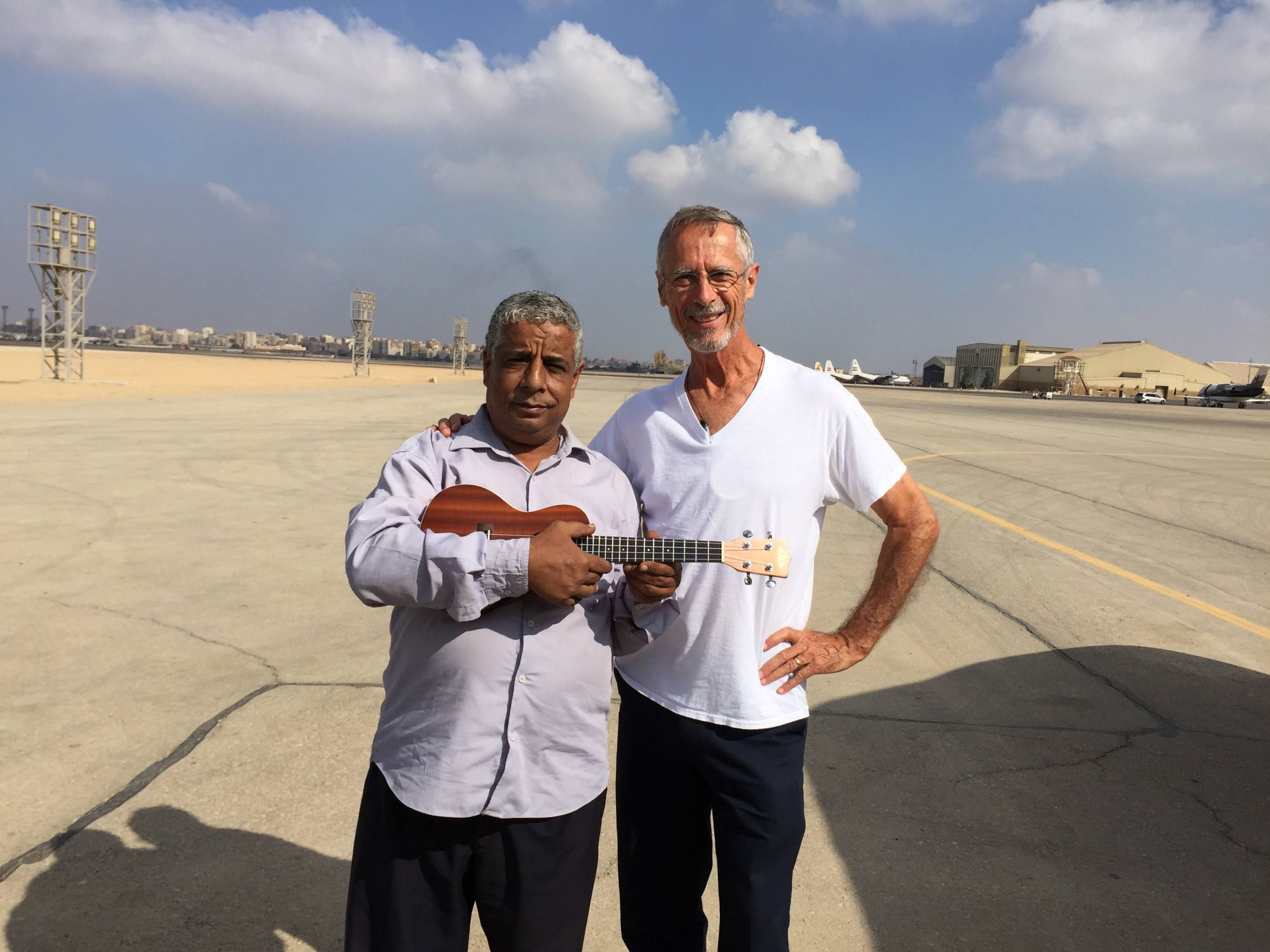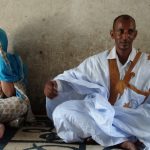Anything to distract the authorities in Cairo, Egypt, while our maintenance technician performed unauthorized repairs so we could hop on over to Geneva.
STORY AND PHOTOS BY DAN GLEASON
“It’s a dangerous business—going out your door,” someone once said to me. But maybe that person didn’t have a ukulele like I do.
I named my uke “Strad” (diminutive of Stradivarius), thanks to a totally unscripted interaction in Vienna when I insisted upon its gentle handling while declaring that I had an appointment with the Vienna Philharmonic that evening. Strad has gotten me through doors in countries as diverse as Kenya, Tajikistan, the Republic of Georgia, and so many others.
Going out the door of our safe homeplaces, or wherever it is we’re most comfortable, means encountering all kinds of things that could make us uncomfortable. At least that’s true for me in my worldwide travels as a pilot. When we cross political or ethnic boundaries, for example, we encounter people with whom we don’t share a common mother tongue, a common political or religious system, common economic or health challenges, common family structures, or common rules for social interaction.
Faced with such obstacles, how do we press through to real human connection?
Enter Strad.
The humble ukulele is a small and easy traveler. It’s cheap, it’s easy to learn to play poorly, and nobody expects it to sound good. Never taken too seriously, it speaks of the child who still lives in us, allowing, even provoking, comfortable shared mirth.
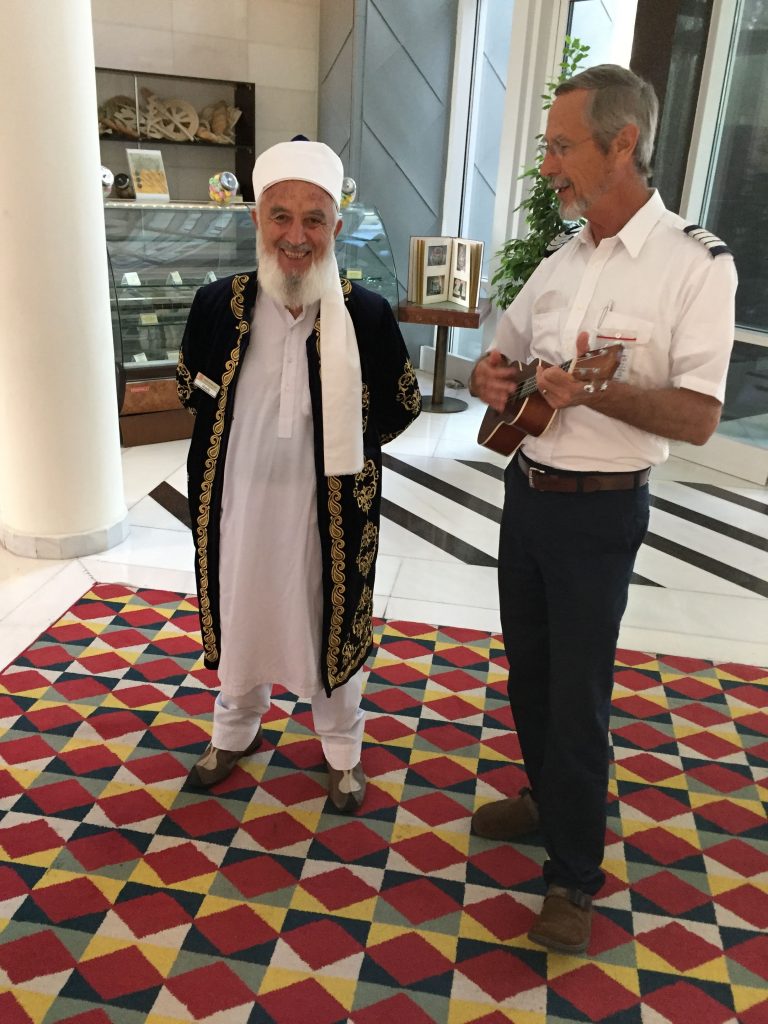
Strad broke the ice in Dushanbe, Tajikistan, too.
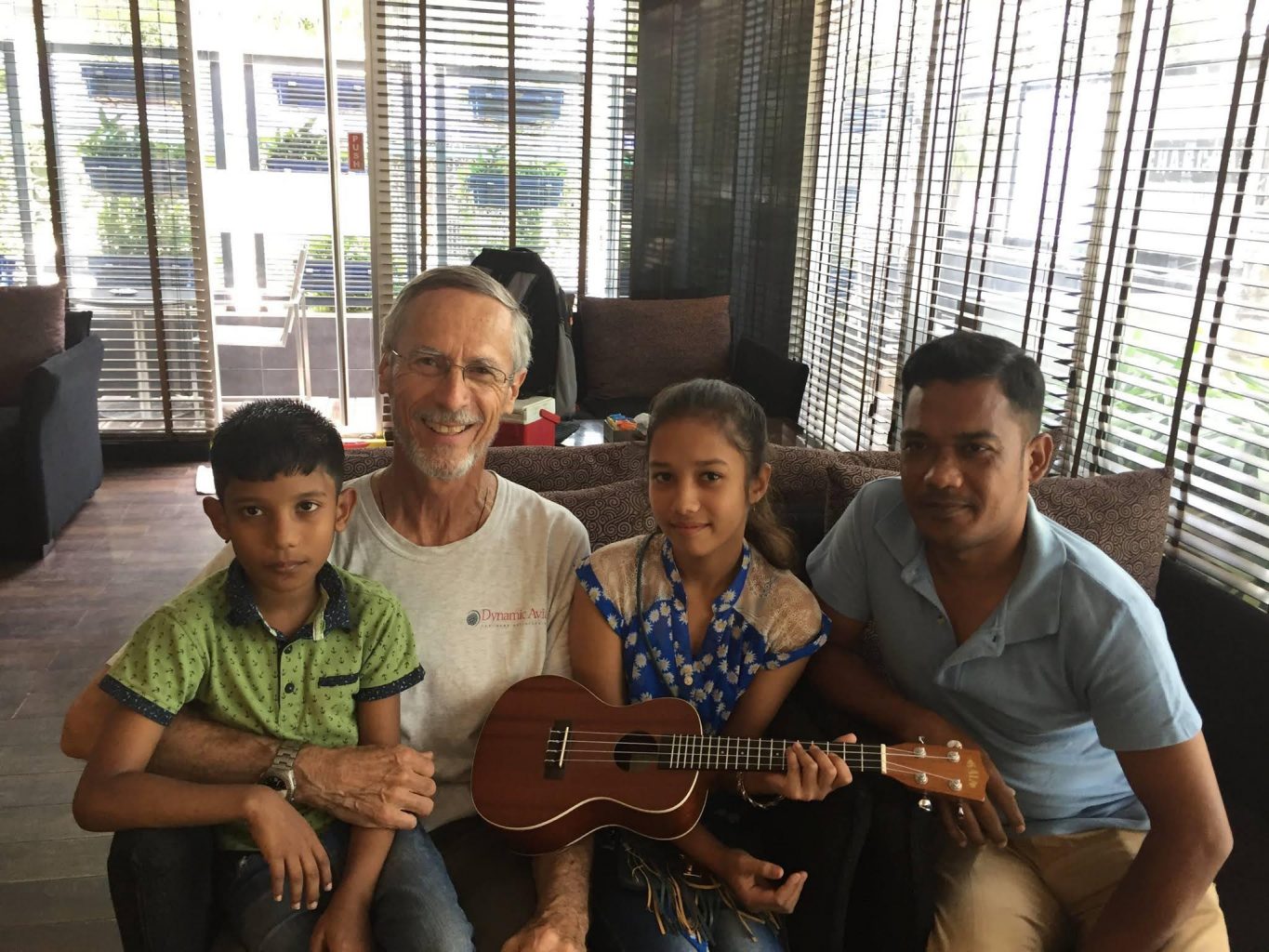
It’s a family affair hanging out with Strad in Bangladesh.
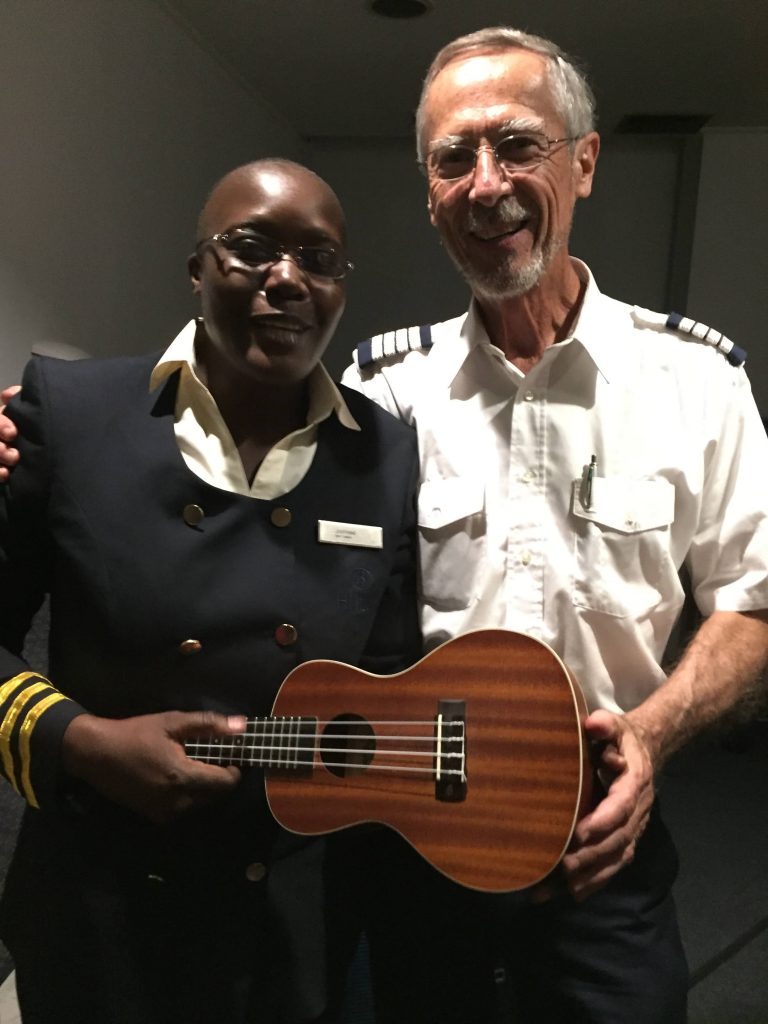
In Nairobi, Kenya, Strad found another fan.
On the Road with Strad
Bangladesh was particularly enigmatic. The back gate we needed to use on a daily basis to access the airport was guarded by an individual who did not speak English and was armed heavily, uniformed poorly, and groomed even worse. His icy, threatening stare was Hollywood perfect. He was doing his job well and I respected him for it. And, well, for his weapons too.
When I smiled, he didn’t return it. When I offered my hand, he didn’t shake it. The barriers were real ones, and my fretting began. My recognition of the guard’s humanity crept away into the shadows.
But then I pulled out Strad and played a barely recognizable version of “Hotel California.” The guard recognized something and sang, right there on the busy street, without even looking over his shoulder to check for a superior officer. He sang in his language, not mine. He sang what sounded to be a traditional cultural or religious melody, about as far from “Hotel California” as was my playing.
Threat suddenly reduced. Common ground found. Mirth, and with it shared humanity, reentered the scene. Not exactly world peace, but the situation was definitely better than it was before the flash concert.
Every day after that the guard and I greeted each other with smiles and handshakes, and his quick wave through security. I got what I wanted, airport access. But I also got what I needed, human connection.
I also found that connection in northern Thailand when an older gentleman hotel worker played Strad and sang “Blowin’ in the Wind,” happy to have me sing along. It didn’t matter what nearby hotel occupants thought of our unrehearsed duet. As for me, I liked the connection it produced, and I think my impromptu choir-mate did as well.
In Brunei a young man servicing our plane showed me how to play some chords I’d been struggling with, a huge smile plastered across his face—and mine.
Maybe instruments of peace and commonality don’t have to be so complicated and rare as we make them out to be.
Dan Gleason, a one-time horticulturist to an historic George Washington family estate, one-time missionary pilot to the rural Philippines, and one-time unconventional niche pilot, was surrounded on all sides of his family by English teachers and overtaken by adventure later in life through no fault of his own. Having piloted planes in 62 countries and visited more, regular people and the God-designed commonness of humanity are his fascination. He believes that real stories tell themselves, but sometimes he feels compelled to record them to share the wealth. He also helps his daughter with homeschooling.

